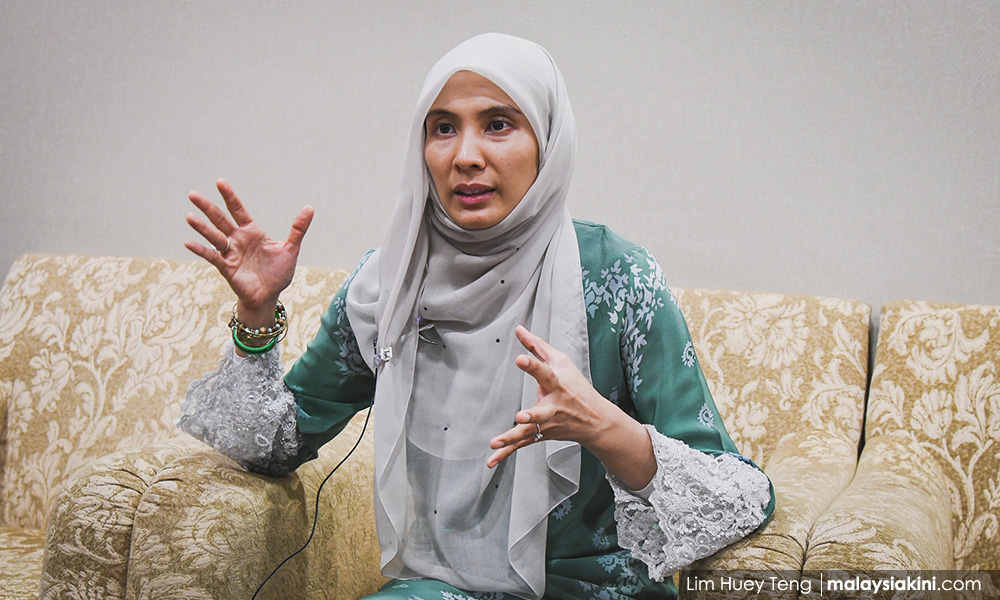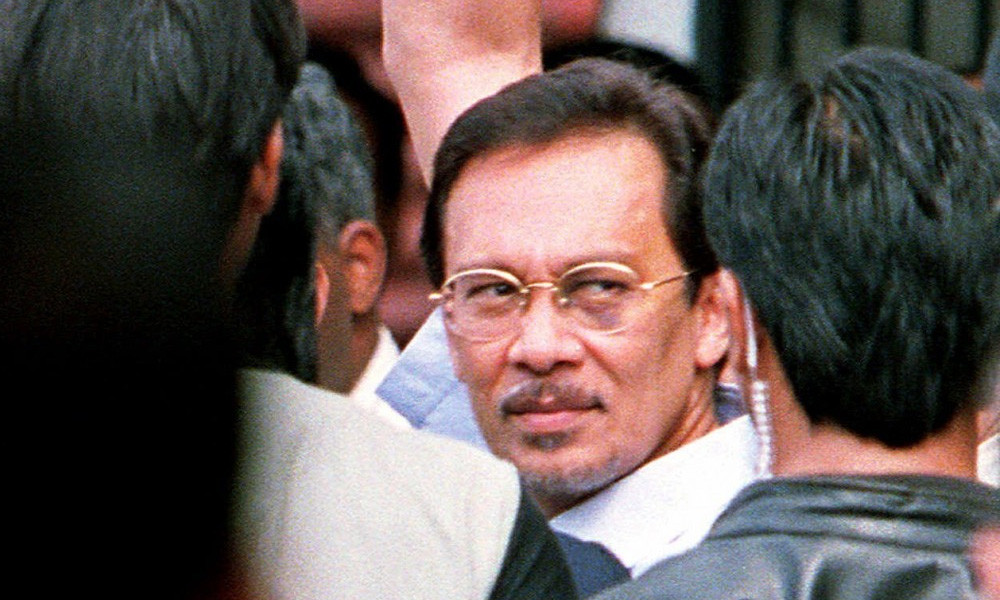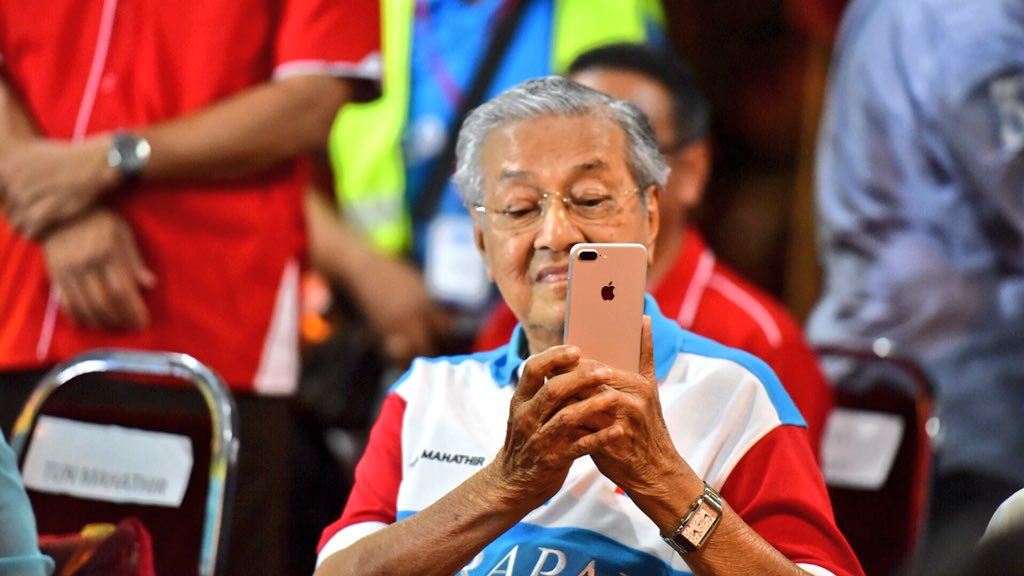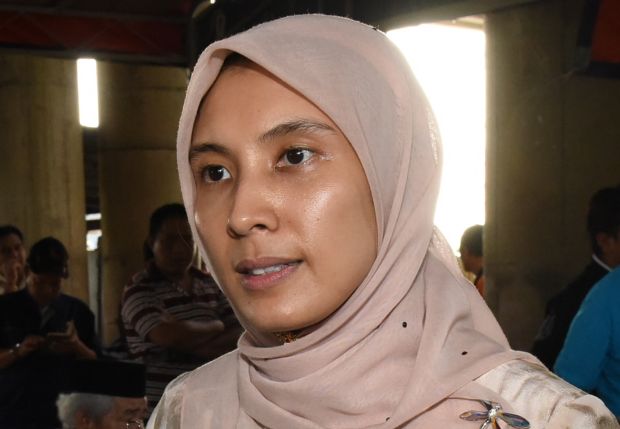
Published by Malaysiakini, The Star & Malay Mail, images from Malaysiakini.
The government is alternatively regarded as a state. As public policy specialist David Easton once called it, “the authoritative allocation of values.” The government, whether due to its sins of commissions or omission, can cause considerable pain.
As the “Princess of Reformasi,” Nurul Izzah, barely 40, the Member of Parliament of Permatang Pauh, has experienced all the trials and tribulations that no average person would have gone through.
This involved seeing heavily armed policemen barging into her home, while she was in her mere teens, to arrest her father Datuk Seri Anwar Ibrahim, then the Deputy Prime Minister in 1998, and confronting the horror of seeing her dad being subjected to two scurrilous trials on spurious charges; which the previous monarch of Malaysia has pardoned and forgiven.
Nurul Izzah has confronted the beast that is the government, indeed, the entire edifice of the state, and bears scars of the pain.
Whether her defiance is as simple as resigning from the vice presidency of Parti KeAdilan Malaysia (PKR) presided by her mom and dad over the last twenty years, her most recent interview with The Straits Times Singapore shows a dignified woman who is dejected by the slow pace of reforms.
By declaring that this is potentially her last term as a Member of Parliament, -perhaps only in Permatang Pauh, Penang, but not elsewhere in Malaysia – Nurul Izzah has shown the all too human need to recover from decades of sordid political mud-slinging.

The puzzle facing Nurul Izzah is one quite similar to what her father Datuk Seri Anwar Ibrahim (above) once posed when manhandled and punched by the former Inspector General of Police Tan Sri Rahim Noor: “If this can happen to me, imagine what could happen to the average citizens?”
Well, if Nurul Izzah can experience a burn-out, barely a year after the victorious triumph of Pakatan Harapan on that historic night of May 9 2018, imagine what Malaysians can feel when they have to struggle with the syndrome of procrastination?
Datuk Seri Najib Razak and his ilk, including his wife, believe that every delay in their legal trial is a step closer to their own freedom.
But when Pakatan Harapan is inconsistent and inconsiderate in stalling on more reforms, one cannot help but be empathetic with the inner struggles of Nurul Izzah.
Whether she is conducting herself as a Member of Parliament, Nurul Izzah is a Malaysian first and foremost. She has a front row seat of the machinations in parliament, and beyond.
She also has a perspective that is rarer: she knows who are stirring the pot to bring about the downfall of not just Datuk Seri Anwar Ibrahim, the incoming Prime Minister, but the incumbent Deputy Prime Minister of Malaysia, Datuk Seri Dr Wan Azizah, her mother too.
By declaring that this is her last term, Nurul Izzah has underscored the extent to which the power and ambition of some politicians, many of whom from her own party, has come to the fore. These are elements who cannot bear to wait to pluck the low hanging fruits of the state.
The pain Nurul Izzah feels, in this sense, is that of the average Malaysian. Many want meaningful and qualitative change, the sort that is systemic and structural.
The last thing Nurul Izzah andr many Malaysians want to see is the politics of same old, some old.
It’s akin to the movie ‘Groundhog Day.’ Every day, the lead character, played by Bill Murray, would wake up to the same old routine, like a car zipping by a pothole to splash muddy water on his trench coat.
Politics also acquire and retain such a quality of dour sameness, a vapid display of same old, same old.
Nurul Izzah has represented the majestic elegance of reform over the last twenty years.

By defending her seat in Pantai, Kuala Lumpur, a constituency that represents the best and worst of both Malaysia – due largely to the vast income gap – she knows the reforms needed to narrow the income differentials of Malaysians have either been waylaid by the powers that be, or ambushed by the Little Napoleons in the party.
Islam does not accept one giving up. What Nurul Izzah is doing is not giving up. She knows it is the people who decide the trajectory and direction of Malaysia, not some backroom schemers, much as their shenanigans, momentarily, seem to be winning out.
Madcap attempts to hijack or capture the state, either by selling its assets or stripping it clean, is but a veiled attempt to increase the size of its political liquidity – ironically, at a time when the government is left with mere crumbs by the previous administration.
Nurul Izzah has seen things that haves weighed down on her “unbearable lightness of being.” But she has also taken the step to warn Malaysians.
Malaysians should wonder if this is the start of another slide in Malaysian democracy; what Joshua Kurtlanzick at the prestigious Council for Foreign Relations called a “democratic retreat”.
Nurul Izzah’s every decision to be in or out politics has become a barometer of how fast, deep and healthy democratic reforms are proceeding.
If she is stepping down, consequently voicing out, Nurul Izzah’s decision is doing the country a favour. She is there to sound the death knell of reforms turning awry.
She isn’t staying put just to enjoy the perks and privileges of the trappings of parliamentary office.
For now, one should give Nurul Izzah space to recover from fatigue, after close to a generation of unrelenting assault against the Leviathan that is the State.
Without the Leviathan, classical philosophers argued that life “would be brutish, lone and short.”
It should be added that with a Leviathan that is incapable of restraining it’s power through parliamentary checks and balances, life would be just as miserable, since Members of Parliament across both aisles are there to enjoy their moment in office, not to serve the larger agenda of improving the lot of the country.
Dr. Rais Hussin is President & CEO of EMIR Research, an independent think tank focused on strategic policy recommendations based on rigorous research.

